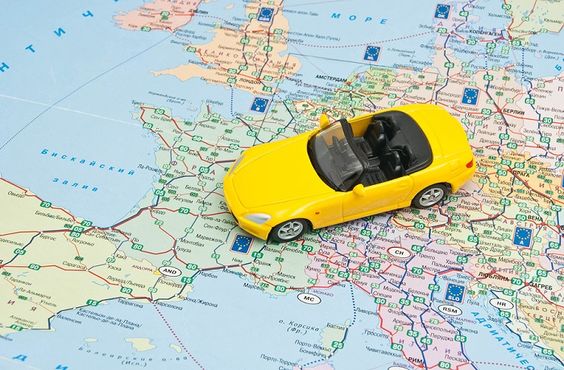
Planning a Post Brexit Move in 2017? 5 Tips For Driving Abroad
Planning a post-Brexit move in 2017? 5 tips for driving abroad
When you visit or move to a different country, being able to drive gives you a great deal of freedom. It means that you don’t have to rely on public transport, or spend a fortune on taking taxis. However, if you do plan to drive abroad, it’s important that you’re well-prepared for the experience before you set off on your first journey.
If you don’t put in the necessary research or take everything you’ll need with you, it could result in you encountering some problems that could put a hitch in your plans. So, here are our tips for driving abroad.
Research the rules of the road
It’s important that you learn the rules of the road for wherever you’ll be driving, as they can differ a lot from country to country. It’s also wise to double-check the relevant driving laws before crossing any borders. This way, you’ll be less likely to encounter any issues and your journeys will go a lot more smoothly.
The driving regulations of certain European countries are significantly different to the UK’s. For example, in France, drivers are required to carry a breathalyser. Also, if you wear glasses and are planning to spend time driving in Spain, you must have a spare pair with you while you’re travelling.
In Germany, you mustn’t drive without winter tyres at certain times of the year, and it’s against the law to pick up hitchhikers in Russia. Additionally, it’s illegal to have a dirty car in Belarus, so you need to keep your vehicle clean if you’ll be driving there.
These are just some of the regulations you’ll be expected to abide by if you decide to drive abroad. Some of them may seem bizarre, but they’ve been put in place for a reason. So, do your research and follow the rules of the road wherever you go — you’ll be making life much easier for yourself.
Always have the necessary documents
There’s a chance you could be asked to show your documents at any time while driving abroad, and failing to do so could result in you being fined or even losing your car. Here are the documents you should have in your vehicle:
– Your full driving licence.
– A copy of your driver record and a licence check code. You can access these through the DVLA.
– An International Driving Permit, which you can get from the Post Office for just £5.50.
– Your vehicle’s original registration document (V5c).
– Your motor insurance certificate. You may need to tell your insurer that you’re going abroad to receive third party cover.
– Your passport(s).
– Your travel insurance documents.
– Your visa, if required. This will depend on the country you’re in. Take a look at the government’s foreign travel advice for more information.
Ensure your car is in good condition
If you’re taking your own car abroad, you need to ensure that it’s in the best possible condition. Of course, you should get it serviced by a professional, but there are also a number of checks you can carry out yourself — and you should continue to do so while you’re away. These include monitoring your tyre pressure and tread, checking how much oil you have left, and keeping an eye on the level of your coolant. By ensuring that your car is well-maintained, you’ll be less likely to encounter any engine problems, and will make life much easier for yourself in the long run.
Get breakdown cover
Don’t just assume that your breakdown cover extends abroad. You may need to extend the plan you already have, or take out standalone breakdown cover that will ensure you’ll be covered abroad. MB&G Direct, for example, offers higher levels of breakdown cover that include European recovery.
Ensuring that you have adequate cover will prevent you from being left stranded at the roadside if your vehicle fails. It will also help you to save money if your car requires any repairs and, above all else, will help to put your mind at ease when you’re driving in an unfamiliar country.
Create a kit of essentials
You may be required to carry a range of different things in your vehicle, depending on the country you’re in. However, you should put together a kit of essentials that will serve you well, regardless of where you’re going.
In many countries, you’ll be required to carry reflective jackets, which you and your passengers can wear if there’s an emergency or your car breaks down. Sports Direct has a selection of affordable hi vis jackets that are perfect for this. You should also carry a warning triangle, which is compulsory in some countries. Additionally, if you’re making a trip in the wintertime, you may need snow chains that, again, are a legal requirement in certainly countries, even if you have winter tyres fitted.
You should also keep essentials, such as a first aid kit, torch, map and a few bottles of water in your car, and you could even buy trauma kits from True Rescue to be extra safe should something go wrong. You’ll be grateful for this if you do encounter a problem and need to wait by the roadside for help.
So, whether you’re moving, working, or holidaying abroad and are planning to drive while you’re there, these tips will help you to adequately prepare. This will put your mind at ease, and your journeys will be more likely to go off without a hitch.

















































